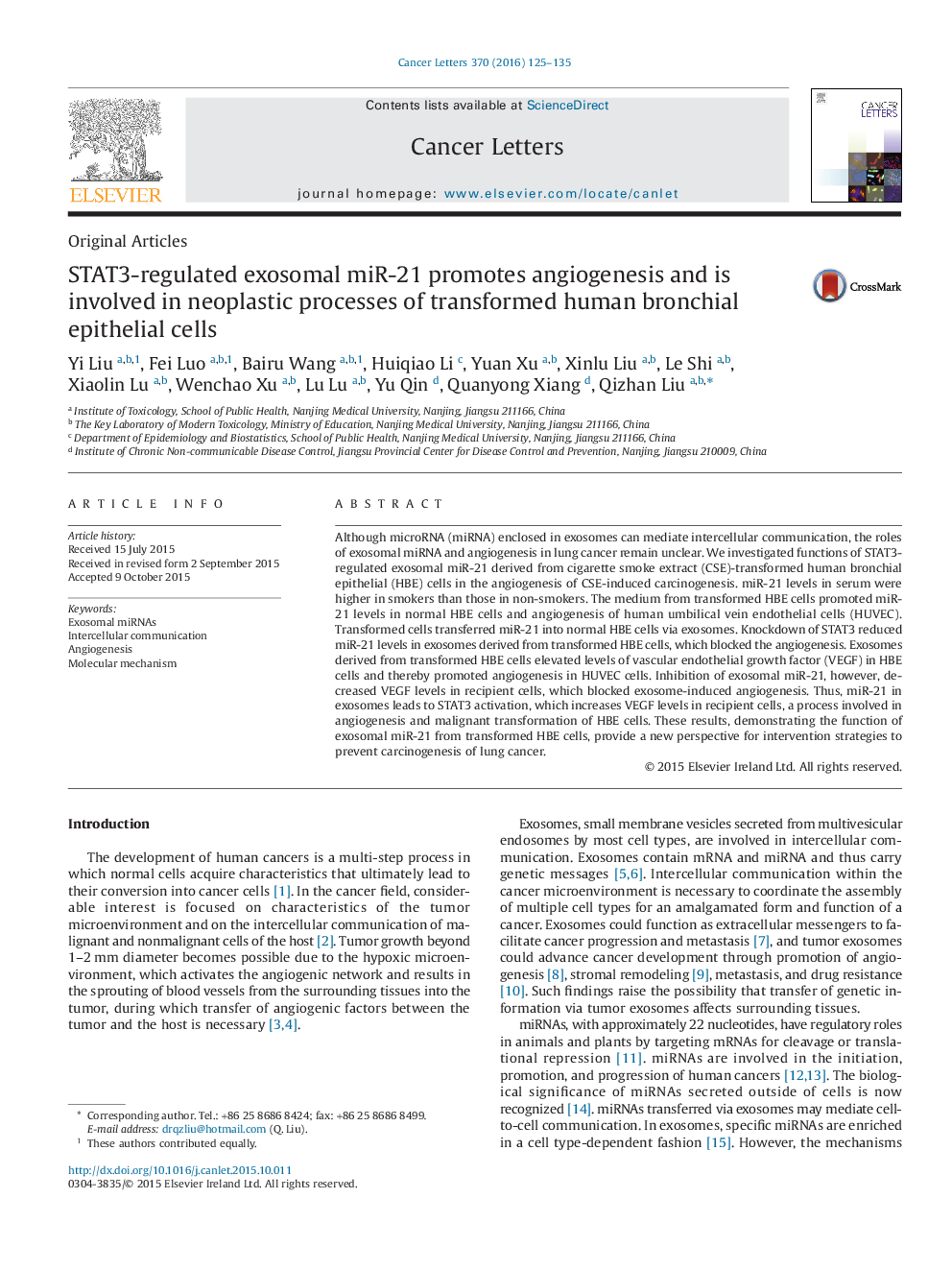| Article ID | Journal | Published Year | Pages | File Type |
|---|---|---|---|---|
| 2116136 | Cancer Letters | 2016 | 11 Pages |
•STAT3 directly regulates the levels of exosomal miR-21 in transformed cells.•Exosomal miR-21 derived from transformed cells regulates VEGF and angiogenesis in recipient cells.•Exosomal miR-21 is involved in the angiogenesis and malignant transformation of cells caused by CSE.
Although microRNA (miRNA) enclosed in exosomes can mediate intercellular communication, the roles of exosomal miRNA and angiogenesis in lung cancer remain unclear. We investigated functions of STAT3-regulated exosomal miR-21 derived from cigarette smoke extract (CSE)-transformed human bronchial epithelial (HBE) cells in the angiogenesis of CSE-induced carcinogenesis. miR-21 levels in serum were higher in smokers than those in non-smokers. The medium from transformed HBE cells promoted miR-21 levels in normal HBE cells and angiogenesis of human umbilical vein endothelial cells (HUVEC). Transformed cells transferred miR-21 into normal HBE cells via exosomes. Knockdown of STAT3 reduced miR-21 levels in exosomes derived from transformed HBE cells, which blocked the angiogenesis. Exosomes derived from transformed HBE cells elevated levels of vascular endothelial growth factor (VEGF) in HBE cells and thereby promoted angiogenesis in HUVEC cells. Inhibition of exosomal miR-21, however, decreased VEGF levels in recipient cells, which blocked exosome-induced angiogenesis. Thus, miR-21 in exosomes leads to STAT3 activation, which increases VEGF levels in recipient cells, a process involved in angiogenesis and malignant transformation of HBE cells. These results, demonstrating the function of exosomal miR-21 from transformed HBE cells, provide a new perspective for intervention strategies to prevent carcinogenesis of lung cancer.
